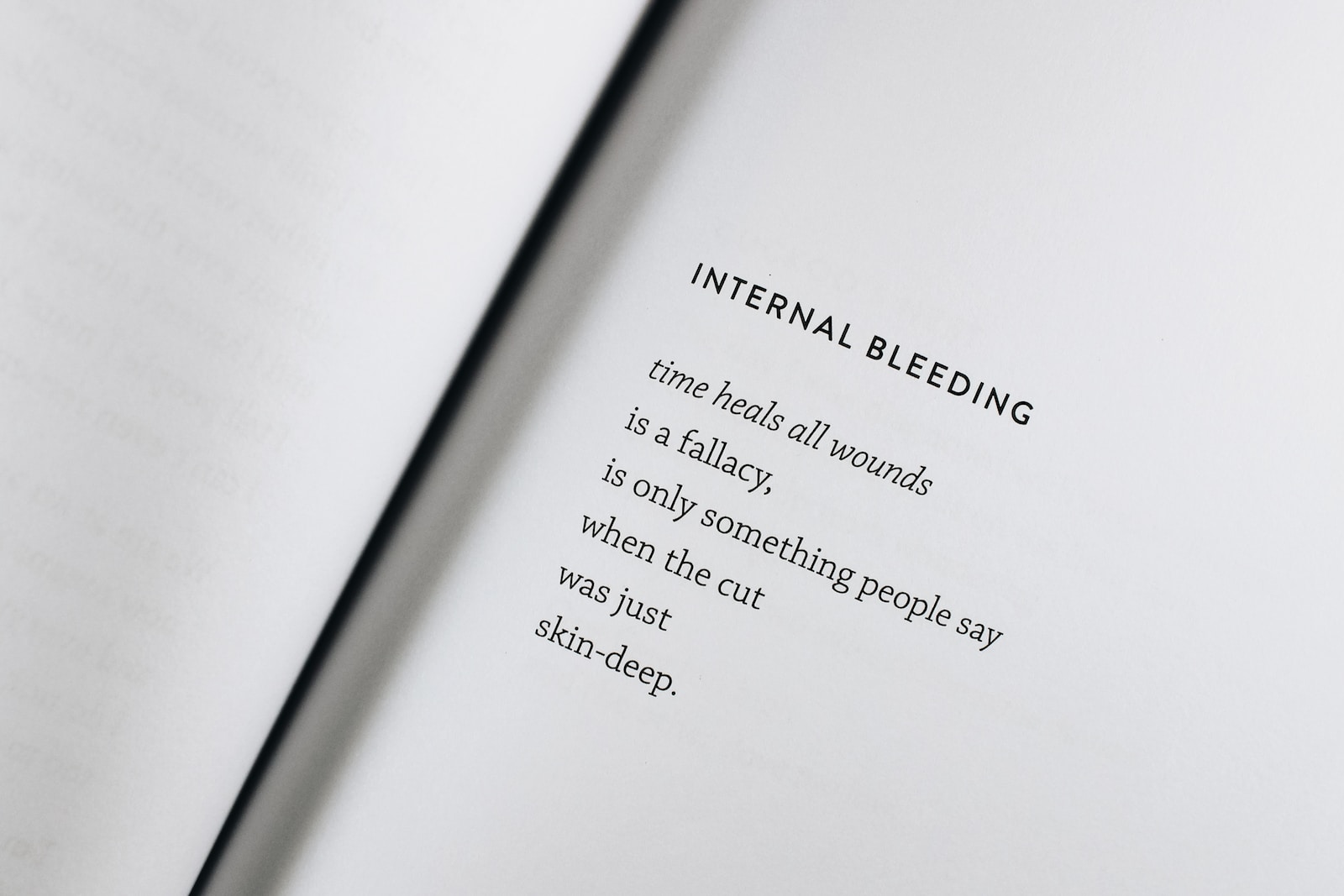Learn how to heal from a breakup. Get tips on self-care, cutting off contact, and reflecting on the relationship. Grow stronger and move forward.
Acknowledging the Pain of a Breakup
Breaking up with someone you love is never easy. Whether you were the one who initiated the breakup or not, it can feel like your world has been turned upside down.
It’s important to acknowledge the pain you’re feeling so that you can start to heal. First, recognize that it’s normal to feel sad and even depressed after a breakup.
You’ve lost someone who was an important part of your life, and it’s okay to grieve that loss. Don’t try to push your feelings aside or pretend like everything is fine.
Allow yourself to cry if you need to, or take time for yourself if that’s what feels right. Secondly, avoid trying to numb the pain with drugs or alcohol.
While it may provide temporary relief, it will only prolong the healing process in the long run. Instead, try practicing self-care activities such as yoga or meditation which will help soothe your mind and body while allowing yourself time for introspection.
The Importance of Taking Time to Heal
It’s tempting to jump right back into dating after a breakup in an attempt to fill the void left by your ex-partner. However, this mindset is often counterproductive when trying to heal from a broken heart.
Taking time for yourself is crucial for emotional healing and growth after a break-up. Everyone’s timeline for healing is different – there are no hard and fast rules; however, allowing yourself time alone with no distractions gives you space for self-reflection regarding what happened in your past relationship as well as what went wrong and what lessons can be learned.
During this period of reflection and healing take care of physical health too: eat healthy food choices; drink plenty of water; get enough sleep; exercise daily; avoid overindulging in unhealthy habits that might make us feel worse instead of better. Recognize that seeking professional help from a counselor or therapist is an option as well.
They are trained to help people get through tough times and can provide strategies to help you move forward. In the end, healing from a breakup takes time, but by taking care of yourself and your emotional needs, you will come out stronger on the other side.
Allow yourself to feel
Going through a breakup is tough, and it’s important to allow yourself to feel all the emotions that come with it. Don’t bottle up your feelings or try to suppress them – this will only make things worse in the long run. Instead, give yourself permission to feel sad, angry, hurt or whatever else you’re feeling.
It’s ok to cry it out, scream into a pillow or let yourself be angry. These are natural reactions and are part of the healing process.
In fact, some experts suggest that crying can be cathartic and help release pent-up emotions. So, don’t hold back those tears – let them flow freely.
Cry it out
Crying is one of the most common ways people deal with emotional pain. It’s a natural response that helps release pent-up emotions and provides a sense of relief afterward.
If you feel like crying after a breakup, don’t hold back – let those tears flow freely! You may find that you feel better afterwards.
Scream into a pillow
Sometimes we need an outlet for our anger and frustration after a breakup. Screaming into a pillow can be an effective way to let off steam without hurting anyone else in the process. Just make sure you’re alone when you do it – otherwise, your neighbors might think something terrible has happened!
Avoid numbing the pain with drugs or alcohol
While it may be tempting to numb the pain with drugs or alcohol, this is not a healthy coping mechanism and can actually make things worse in the long run. Substance abuse can lead to other problems such as addiction and physical health issues.
Instead of turning to drugs or alcohol for comfort, try other healthy ways of dealing with your emotions such as exercise or talking with friends and family members who care about you. Remember that healing takes time, and it’s important to take care of yourself during this process.
Cut off contact
Breaking up is tough, and sometimes it’s best to create some distance between you and your ex. One of the first things you should do to help yourself heal is to cut off contact with them. This can be difficult, especially if you’re used to talking or seeing each other every day, but trust me, it will make the recovery process much easier.
First things first, unfollow them on social media – yes, that means Instagram, Twitter, Facebook – all of it. Seeing constant updates about their life will only make you feel worse and hinder your progress in getting over them.
Another effective way of cutting off contact is by deleting their phone number. Yes, I know this might sound extreme – maybe you want to keep their number just in case they text or call you one day – but trust me when I say that having their number saved on your phone will only lead to temptation.
You’ll find yourself checking your phone constantly in anticipation of a message that may never come. If possible try to avoid running into them in person for a while after the breakup.
This may be difficult depending on how intertwined your lives are (especially if you share mutual friends or attend the same school/workplace) but try your best. If seeing them brings back too many memories and feelings it’s probably best just to keep some distance between the two of you until you’ve had time to heal properly.
Unfollow on social media
Social media can be a double-edged sword when it comes to breakups: on one hand, seeing what our exes are up can give us much-needed closure; however on the other hand seeing them move on without us can be incredibly painful and trigger strong emotions within us which we need time to process. Unfollowing someone doesn’t mean that we’re angry or resentful towards them; rather it is a way of allowing ourselves the space we need to move on. It’s hard enough to deal with the pain of a breakup without constantly being reminded of what we’ve lost every time we log onto social media.
If you’re worried about offending your ex by unfollowing them, don’t be – they probably won’t even notice. Besides, it’s important to prioritize your own mental health and well-being over someone else’s feelings.
Avoid running into them in person if possible
Sometimes life has a way of throwing us curveballs – even if we’ve taken steps to avoid seeing our ex, there may be times when it’s unavoidable (e.g. running into them on the street or at a party). If this happens, take a deep breath and try not to panic – you’ve got this!
If you do bump into your ex unexpectedly, keep the conversation brief and polite. You don’t need to go into great detail about how you’re feeling or why things ended; in fact, it’s probably best if you avoid these topics altogether.
Instead focus on making small talk or exchanging pleasantries before politely excusing yourself and making a quick exit. Remember that just because you’ve run into your ex doesn’t mean that all is lost – take comfort in knowing that you’ve taken steps towards healing by cutting off contact and trying not to dwell on them too much.
Focus on Self-Care
Exercise regularly and eat well
When dealing with a breakup, it’s common to lose motivation for things like exercise and healthy eating. But taking care of your body is crucial during this time. Exercise releases endorphins which can boost your mood and help alleviate stress.
Aim for at least 30 minutes of moderate exercise, such as brisk walking or yoga, most days of the week. In addition to exercise, make sure you’re fueling your body with healthy foods.
It can be tempting to indulge in comfort foods or skip meals altogether but this will only make you feel worse in the long run. Focus on filling your plate with whole grains, lean proteins, fruits and vegetables.
Treat yourself to a spa day or take up a new hobby
Part of self-care is treating yourself to things that bring you joy. Consider booking a spa day where you can relax and unwind with massages or facials.
Or take up a new hobby that you’ve always been interested in but never had the time for before. This could be anything from painting to cooking classes.
It’s important to remember that self-care doesn’t have to be extravagant or expensive either. Take a bubble bath, curl up with a good book or watch your favorite movie – whatever makes you happy.
Overall, focusing on self-care during this time will help improve your physical health as well as boost your mood which is necessary when getting over a breakup. So go ahead and pamper yourself!
Surround Yourself with Support
Breaking up with someone can leave you feeling alone, lost, and vulnerable. However, it’s important to remember that you don’t have to go through it alone. Surrounding yourself with support can help you get through the tough times and come out stronger on the other side.
One of the first people you may turn to for support is your family and friends. They know you best and will likely be there for you no matter what.
Lean on them for emotional support during this difficult time. Whether it’s talking about what happened or just having someone to sit next to while watching a movie, their presence can make all the difference.
If talking to friends and family isn’t enough, consider seeking professional help in the form of therapy or counseling. A trained therapist can provide a safe space for you to explore your feelings and emotions without judgment.
They can also provide tools and techniques to help cope with the pain of a breakup. Don’t be afraid to seek help if needed – there is no shame in taking care of your mental health.
Why Talking About It Helps
Talking about what happened during a breakup may seem like an obvious solution, but it’s one that some people struggle with. However, keeping everything bottled up inside can actually do more harm than good.
By sharing your thoughts and feelings with others, whether it be friends or a professional counselor, will allow you an outlet for expressing those emotions freely without fear of judgment or criticism. Moreover, discussing past relationships allows us introspection toward our behaviors towards love interests as well as learning how our partners viewed us during our relationship.
The Benefits of Professional Help
Seeking therapy after a breakup is not always necessary but sometimes required when one feels they cannot move on from their previous partner by themselves alone nor by being surrounded by friends; professional guidance becomes necessary at this point. Therapy/counseling can provide you with a safe space to explore your emotions, thoughts, and feelings without fear of judgment. It can also help you develop coping mechanisms and techniques to deal with difficult emotions such as depression or anxiety that may arise after a breakup.
It’s vital to surround yourself with support during a breakup. This may come in the form of friends and family or professional help from a therapist or counselor.
Talking about what happened and how you feel is essential for healing and moving on from the relationship. Remember that it’s okay to seek professional help if needed – taking care of your mental health is just as important as taking care of your physical health.
Reflect on the Relationship
Going through a breakup can be tough, but reflecting on the relationship can help you grow and improve for future relationships.
It’s important to look back on what went wrong in the relationship and what you learned from it. This reflection can help you avoid making the same mistakes again in your next relationship.
Identify What Went Wrong
As much as it may hurt to admit, there will always be something that went wrong or wasn’t working in the relationship. It’s important to identify those issues so that you can learn from them and avoid repeating them in your future relationships.
Think about how communication was between you and your partner. Were there certain topics that were avoided or not discussed enough?
Was there a lack of understanding between each other’s needs? Did one person feel neglected or unsupported?
It’s also important to consider any external factors that may have contributed to the breakup, such as distance or work-related stress. By identifying what went wrong, you’ll have a better understanding of what qualities and characteristics to look for (or avoid) in future partners.
Use this Knowledge to Grow and Improve for Future Relationships
Once you’ve identified what went wrong in the previous relationship, it’s important to use this knowledge to grow and improve yourself for future relationships.
For example, if communication was an issue in your previous relationship, take steps towards improving your communication skills by being more open and honest with friends or family members. If trust was an issue, take time to work on building trust within yourself first before entering into a new relationship.
Additionally, learning from past mistakes also means being aware of red flags early on in a new relationship. It’s easier said than done but try not repeating patterns of behavior; instead take necessary steps toward healing old wounds so they don’t affect your present and future relationships.
Reflecting on the relationship isn’t always easy but when done correctly, it can help you grow and improve for future relationships. Remember that healing is a process, and by taking these steps towards growth, you’ll come out stronger in the end.
Don’t rush into a new relationship
Breaking up can leave you feeling lonely and lost, and it’s easy to want to fill that void with a new relationship. However, it’s important to resist this urge. Rushing into a new relationship before you’re ready can lead to more heartbreak down the line, as well as potentially hurting the other person involved.
One major reason not to rush into a new relationship is that it doesn’t allow for adequate healing time. Breakups often leave emotional scars, and these need time to heal properly.
By jumping into a new relationship too soon, you risk carrying over emotional baggage from your previous relationship, which could ultimately sabotage your chances of forming a healthy connection with someone else. Another reason not to rush into a new relationship is that it can be unfair to the other person involved.
If you’re still dealing with unresolved emotions from your previous breakup, getting involved with someone else could end up hurting them as well. It’s important to take responsibility for your own emotional state and make sure that you’re ready before getting involved with someone else.
Take time to fully heal before jumping back into dating
After going through a breakup, it’s crucial to take time for yourself in order to fully heal before jumping back into dating. This healing process may involve self-reflection on the past relationship and understanding what went wrong so that you don’t repeat past mistakes in future relationships.
During this period of healing, taking care of yourself both physically and emotionally is key. Taking the time for self-care activities such as exercise or engaging in activities you enjoy like listening music or painting will help boost self-esteem and provide comfort during this difficult period.
It’s also important not feel rushed when getting back out there again. This might mean taking things slow if the opportunity arises so that there’s enough time spent evaluating whether they’re truly ready for another serious relationship.
It’s better to take the time to heal properly in order to be emotionally available for a new relationship and not bring any baggage from the past. It’s crucial not to rush into a new relationship after a breakup, and instead take the time to fully heal both physically and emotionally before jumping back into dating.
By doing so, you ensure that you’re ready for a healthy, fulfilling relationship in the future and that you don’t carry any emotional baggage from your previous relationship. Remember – healing is a process, but taking the time for self-care will provide benefits that last beyond just getting over the end of a relationship.
Conclusion: The Healing Process Takes Time
Breaking up is hard to do, but it’s a natural part of life. It’s important to remember that healing from a breakup takes time and effort.
There are many different things you can do to help yourself recover and move on, including allowing yourself to feel your emotions, cutting off contact with your ex-partner, focusing on self-care, leaning on friends and family for support, reflecting on the relationship and what you learned from it, and avoiding rushing into a new relationship. It’s important not to compare your healing process with anyone else’s because everyone moves at their own pace.
You may have days where you feel like you’re making progress while other days may feel like setbacks. However, each day is an opportunity for growth and healing.
Eventually, as time goes by, the pain will subside. You’ll find yourself thinking about them less often until one day they don’t even cross your mind anymore.
And when that day comes – when you can think about them without feeling any hurt or sadness – that’s when you’ll know you’ve fully healed from the breakup. Remember: this isn’t just a loss; it’s also an opportunity for growth.
A breakup can teach us valuable lessons about ourselves and our relationships if we allow ourselves the space to reflect on what went wrong and what we could have done differently. So keep moving forward at your own pace and know that you will come out of this experience stronger than before.






